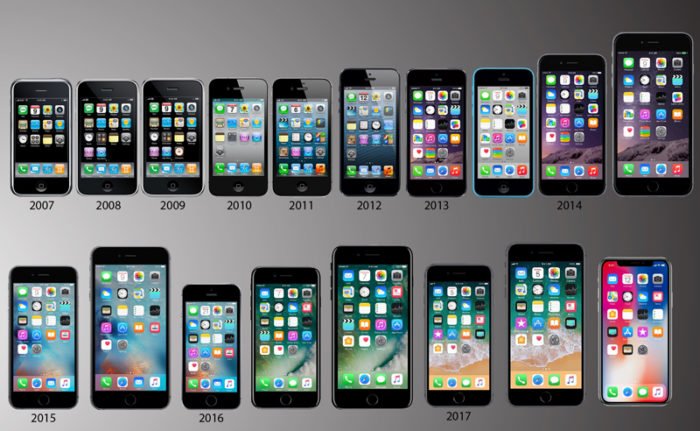Why is this interesting: As GM looks to evict Apple from its instrument panels, Porsche is doubling down. Why? I’d argue that it’s a move entirely consistent with Porsche’s brand values.
One of life's most underrated luxuries is consistency.
The Birkin bag, for example, that year after year fulfils its purpose of carrying stuff and signalling to the world that you're the kind of person that carries a Birkin.
Or the experience of the Four Seasons or your favourite restaurant, where you're not merely a paying customer, but are made--reliably and time after time--to feel like part of something larger.
The Four Seasons, Casablanca
The colours, the leathers, the locations and the menus may change, but the impact of these products and services on our psyches remain. Consistency takes away the cognitive load that comes wth wondering "will it work?" or "will I get what I need?" or, on some deeper level, "will I be loved?" Consistency returns valuable processing cycles to our brains, and in doing so, liberates our time, which is perhaps the greatest luxury of all.
I used to own a Porsche 928 and I've driven a dozen different Caymans, Boxsters, and 911s over the years. Last year, a family member bought a Cayenne, so I've been driving that a bit, too.
Whether the car was developed in the 70s and effectively hand-built in the 90s, or created at the time that the company was going bankrupt and adopting the Toyota Production System, or is an SUV based on a platform shared with a multitude of other brands' cars, each and every Porsche I've driven has offered consistency in the placement, logic, and even weight of its major controls.
And whether the car was a grand tourer like my 928, a GTS, GT3 RS, or SUV, there has always been a kinship in how these cars have moved down the road. They strike a masterful balance between compliance and connection. Their engines have all shared a capacity for languid lolling and rabid lunging.
A mastercalss in design consistency
With a Porsche, you see, you always know what you're gonna get. Drive one blind and you'd be immediately aware of its qualities. Drive multiple and you'd feel immediately at home, comfortable. Brain cells liberated by their consistency, you can focus on the really important stuff.
So it's no surprise, really, that Porsche is the first manufacturer to explore a deeper integration of Apple's CarPlay.
Starting with the facelifted Cayenne and soon to roll out to other models, Porsche will offer an Apple-designed interface for vehicle hardware features like climate control and ambient lighting. This is in addition to the interface Apple already supplies for entertainment, navigation, and communication. The fussy interface of Porsche's own design will see even less use and we get a preview of how it might disappear all together as the vehicle's digital interactions are fronted entirely by Apple or, eventually, perhaps, Android Auto, too.
But why would Porsche do this?
Brands like GM say that they expect to extract billions in extra revenue from digital services over the coming years. They argue that the in-car interface is the portal to this new form of moneymaking. In its pursuit of digital pay dirt, GM has even gone so far as to drop Apple CarPlay and Android Auto entirely from its future products. Suppliers are setting up their own app stores and developer ecosystems. Surely Porsche wants in on this game, too.
Or maybe they recognise their strengths in producing some of the finest driving machines in the world. More importantly, perhaps they recognise their weakness in delivering digital interfaces that match the quality of their cars. But above all, I think they recognise their customers' preferences, and what it means to be consistent in meeting them.
Like the 911, Apple's iOS has shown remarkable consistency in logic and layout since its introduction in 2007
The devices we carry in our pockets have, for many of us, become the centre of our lives. The interface of iOS, with its familiar patterns, colours, and logic, is by far and away the most heavily used in the life of anyone who owns an iPhone and CarPlay has brought it, in wildly successful fashion, to the car.
Chances are that a Porsche owner is likely to own another car, too. And should that car be reasonably new, CarPlay is likely to feature. And even if that second (or third, or fourth) car is an older Porsche, the company will now sell you a CarPlay upgrade to bring its digital capabilities up to date.
Porsche Classic Communication Management (PCCM) allows you to enjoy the Apple CarPlay experince in cars dating back to 1965
Against this backdrop, for Porsche to demand that you learn something new so that you can simply change the temperature of the cabin, or the colour of your ambient lighting seems arrogant and unnecessary.
By offering up Apple's interface to control these non-driving aspects of the vehicle, Porsche seems to be saying: let's make this easy, let's make this familiar. Let's make the digital interface consistent with your life outside of the car. And we'll focus on the stuff we do best: the experience of driving, the connection to the road, that deep sense of engineering integrity for which we're so well known.
All of which sounds like a recipe for luxury.




